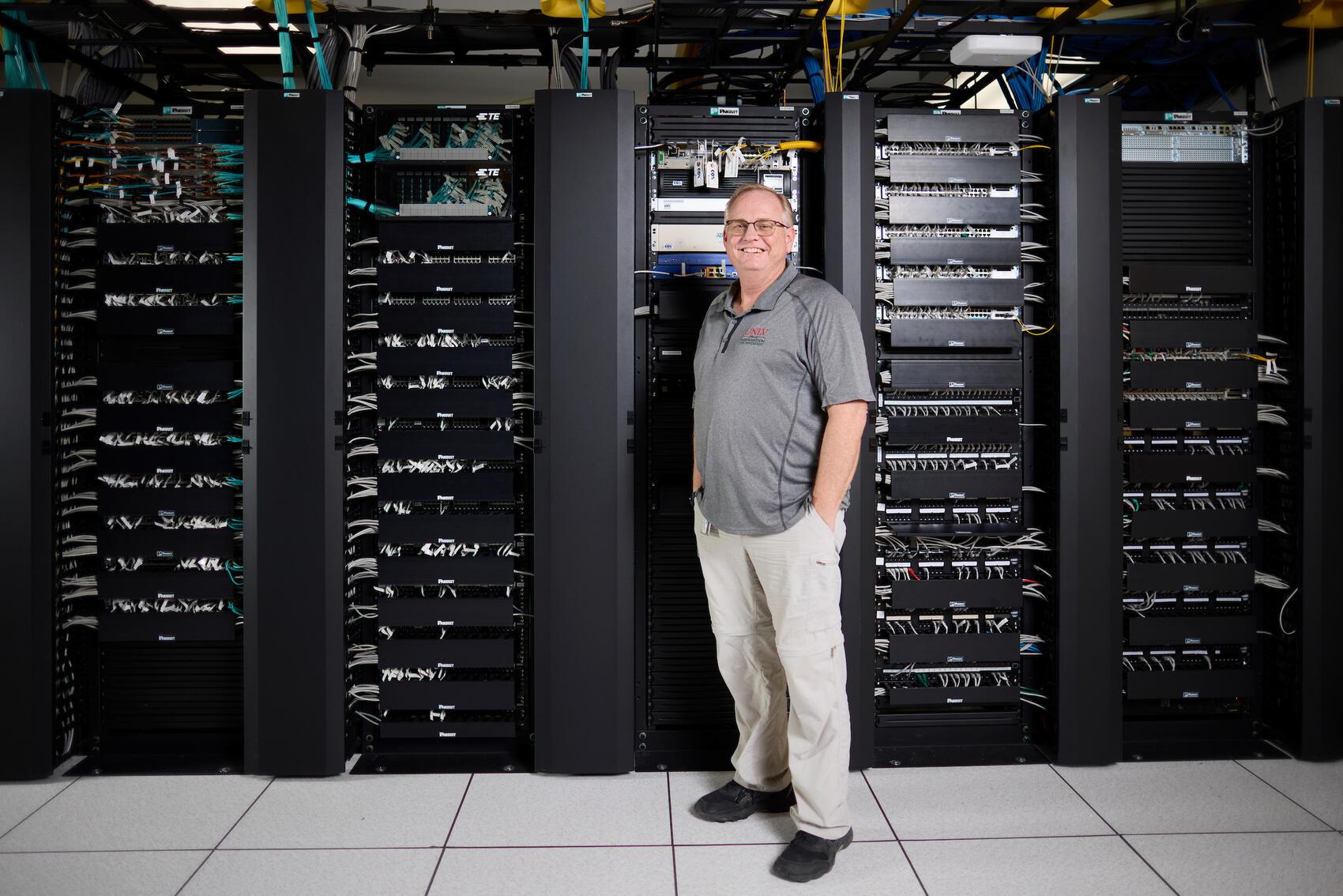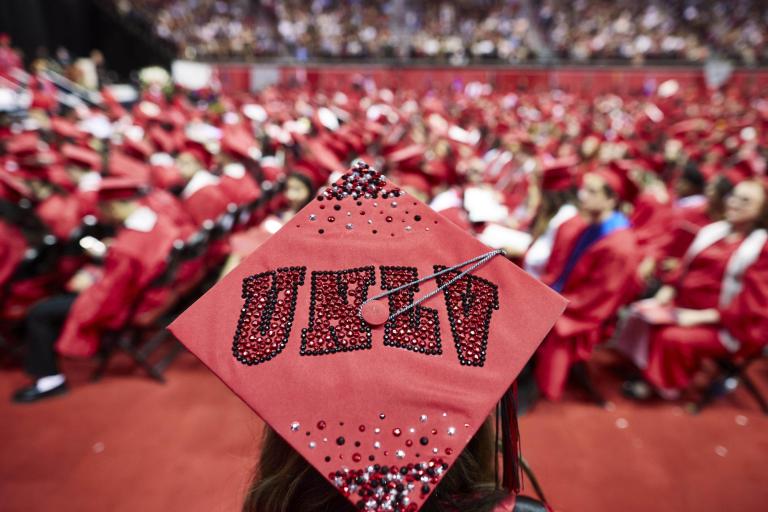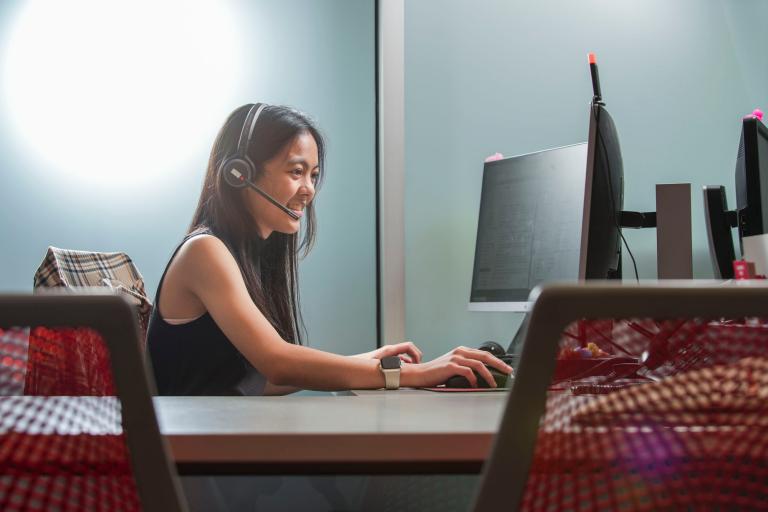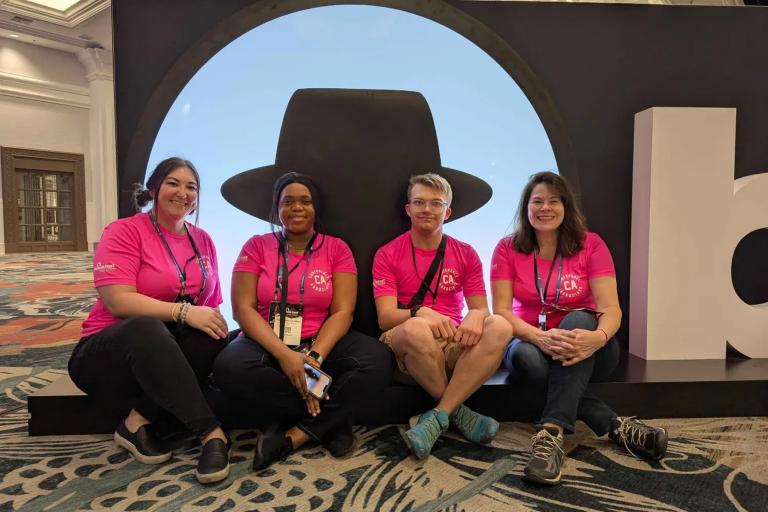The Interview: Eric Kraft
The Interview: Eric Kraft

Listen to this article
Editor's Note:
This article originally appeared in the UNLV News Center on Feb. 5, 2024.On the weekends, you’ll catch Eric Kraft off-roading in his UTV with his family at desert hotspots like Dumont Dunes. His brother-in-law showed him how to tackle tough terrain after a weekend camping trip when Kraft first started off-roading. But the Air Force veteran is no longer a rookie behind the wheel. Instead, he’s confident in the driver’s seat, taking on bigger obstacles outdoors, like he does at work.
Kraft is a structured cabling engineer on the Network Development and Engineering (NDE) team in Information Technology. He’s an inspector of sorts, making sure equipment that provides network connectivity on campus is working. He’s also a teacher and mentor to his student employees, much like his brother-in-law was to him when he started getting into off-roading.
As the NDE student worker program supervisor, he’s building connections with the next generation to help them gain the skills they need to pursue their future careers — even if it’s not technology-related — and have the work they do every day influence the transformation of UNLV.
How did you get into your field?
Before I retired from the Air Force after 24 years, I worked at American Forces Network (AFN) Television, which broadcasted U.S. television and sports to overseas military personnel and their families for free. I was trained in radio and security systems, so becoming an engineer for the television network was a natural career move. I liked following strict guidelines and installing new systems for AFN. To be a part of a service that reminded so many people of home was fun for me.
I’ve shifted from installing systems to being the person who makes sure things meet guidelines and standards. I still use the knowledge I gained in the Air Force in my current role at UNLV. As a structured cabling engineer, I inspect the installation of network cabling, checking to ensure equipment is working properly to provide optimal network coverage in buildings, outdoor areas, and other campus locations for students, faculty, staff, and visitors.
Tell us about the student worker program you supervise.
I have a great team of student employees and public service interns. This program provides real-world experience for them to pursue a technology career. I may oversee their day-to-day tasks and provide guidance, but these students are the ones doing the work, activating ports and troubleshooting connectivity issues on campus. They’re essential to what we do every day.
It’s always rewarding to see our students succeed after they’ve graduated. We have quite a few stories where they’re using what they learned from their time with us and are applying it to their new careers. A recent graduate is using the skills he learned about the network to make gaming machines, while a couple of current students seeking education degrees aim to incorporate technology into their future teaching careers.
Tell us about the last big project your team completed.
Hands down, the new Advanced Engineering Building (AEB). A lot of people in Information Technology and across campus were involved in getting that finished this spring.
Before construction could even start, our NDE team had to relocate 1,000 strands of fiber because the new building was being built over it. We carefully tackled this project in two weeks, installing temporary fiber to make sure dozens of buildings had network connectivity while the site for the new building was being prepared. Once new fiber was installed, we were able to remove the temporary and old fiber.
The new engineering build must have some advanced technology features in it. What’s one thing you can share with us about that?
AEB is the first building on campus that has access points that use artificial intelligence to self-identify issues, then report those problems back to our NDE team. The three-story, 52,000- square-foot building has about 63 access points, which act as a hub for computers, cell phones, and other devices to connect to the campus network.
With this technology, we’re able to address network equipment or connectivity problems quickly and more efficiently because our team isn’t spending additional time troubleshooting every access point to isolate the problem and maintain network operations so that the campus is not impacted.
What advice have you given your student employees?
Landing a career you're passionate about is like off-roading. Yes, you’ll run into some bumps and turns, maybe some unexpected ones along the way. But the more experience you get behind the wheel, the more comfortable you’ll get with handling different terrain on your journey towards a big career.
What series are you most excited to see?
I’m a huge fan of history and looking forward to Masters of the Air. It’s about the B-17 Flying Fortress unit during World War II. It’s a companion to Band of Brothers and The Pacific, which were both really well done. I hope Masters of the Air tells the story of what these brave men experienced during their harrowing missions as well as or even better than the other two series.


